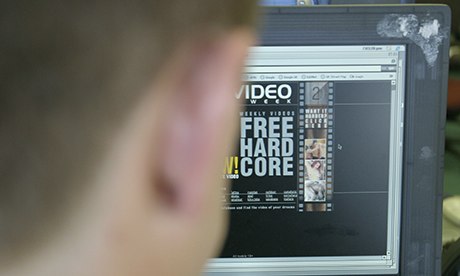
It seems that body consciousness among young women has taken its most darkly worrying turn yet. Gynaecologists warned this week that cosmetic labial reduction requests have increased dramatically over the past five years, a trend driven partly by the images in pornography.
Some 2,000 labiaplasty operations were performed by the NHS in 2010, which represents a fivefold increase in 10 years. And this could be the tip of the iceberg with thousands more seeking surgery privately. According to the Royal College of Obstetricians and Gynaecologists ethics committee, women – including girls under 18 – are choosing to undergo the operation because of increasing access to "unrealistic and narrow representations of vulval appearance in popular culture". In other words, pornography. Advertising by private clinics too is blamed for conveying a "distorted" image of what female genitals look like and playing down the risks of surgery.
I've always found the knee-jerk reaction "porn is evil" to be damaging and simplistic. We need to recognise that some material is harmful, but there is no point trying to eliminate it without discussing why people use it and why it exists. But the latest warning is too scary to ignore.
There are legitimate medical reasons to have the surgery, in which the patient's labia minora are reduced in size, and for such operations to be done by the NHS. But since there has not been any significant increase in the occurrence of labial disease over the last five years, we can conclude that there is a dramatic increase in the number of women undergoing the procedure to match the porn performer aesthetic. The doctors are now calling for this to stop – with the consensus being that under-18s should not be offered "designer vaginas" and that when it's purely aesthetic, it certainly shouldn't be a state-funded operation.
Porn has so many negative connotations that the word has come to symbolise the sort of filth that leads to an immediate moral panic, rather than simply sex on a screen. It's rare that adult material gets a mention without an anxious discussion about what it's doing to our teenage children, and it gets blamed for everything from body issues to rises in pregnancy and disease. Earlier this year, when David Cameron unveiled a plan that meant internet users would be forced to "opt in" if they wished to view anything pornographic online, it became clear that he felt potential voters feared porn more than they feared crack cocaine and gang violence.
The problem isn't just about the proliferation of teenage porn users – it's that porn's uniform, overtly sexual aesthetic has exploded. You're as likely to see a flash of airbrushed vulva on a music channel as you are on an adults only website. Iggy Azelea's VMA outfit, Miley Cyrus' photo shoot with Terry Richardson and Jaime Winstone's appearance at the Royal Academy's Summer Exhibition all showed far more than you'd expect to see before the watershed – but the pictures are a completely innocent internet search away.
Women should have complete agency when it comes to showing their bodies, and it's never been helpful to tell anyone to "put it away, love". But the spirit of this new strain of exhibitionism doesn't seem joyful or experimental – it's imbued with a weary sense of obligation.
An all-out ban on porn isn't going to clean up music videos, and it isn't going to stop young women having invasive procedures in order to match a phony sexual ideal. Perhaps if sex education was a little more explicit, and young men and women had some sense of the almost infinite range of ways in which a pubic area can be arranged, they would embrace variation downstairs. The most important thing to teach teenagers is that no one should ever have to dramatically alter their body just to be sexually acceptable.

